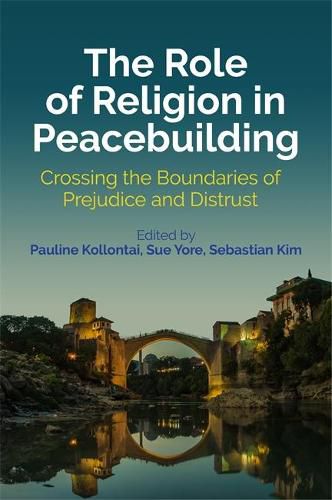Readings Newsletter
Become a Readings Member to make your shopping experience even easier.
Sign in or sign up for free!
You’re not far away from qualifying for FREE standard shipping within Australia
You’ve qualified for FREE standard shipping within Australia
The cart is loading…






The question ‘who is my neighbour?’ challenges the way we see ourselves as well as the way we see others. Especially in situations where we feel conflicted between our own self-identity and common identity within a wider society.
Historically, religion has contributed to this inner conflict by creating ‘us versus them’ mentalities. Challenging this traditional view, this volume examines how religions and religious communities can use their resources, methodology and praxis to encourage peace-making.
The book is divided into two parts - the first includes sources, theories and methodologies of crossing boundaries of prejudice and distrust from the perspectives of theology and religious studies. The second includes case studies of theory and practice to challenge prejudice and distrust in a conflict or post-conflict situation. The chapters are written by scholars, religious leaders and faith-motivated peace practitioners from various global contexts to create a diverse academic study of religious peace-building.
$9.00 standard shipping within Australia
FREE standard shipping within Australia for orders over $100.00
Express & International shipping calculated at checkout
The question ‘who is my neighbour?’ challenges the way we see ourselves as well as the way we see others. Especially in situations where we feel conflicted between our own self-identity and common identity within a wider society.
Historically, religion has contributed to this inner conflict by creating ‘us versus them’ mentalities. Challenging this traditional view, this volume examines how religions and religious communities can use their resources, methodology and praxis to encourage peace-making.
The book is divided into two parts - the first includes sources, theories and methodologies of crossing boundaries of prejudice and distrust from the perspectives of theology and religious studies. The second includes case studies of theory and practice to challenge prejudice and distrust in a conflict or post-conflict situation. The chapters are written by scholars, religious leaders and faith-motivated peace practitioners from various global contexts to create a diverse academic study of religious peace-building.